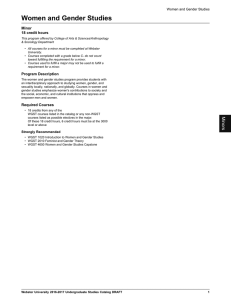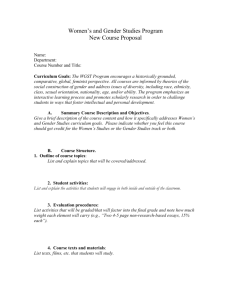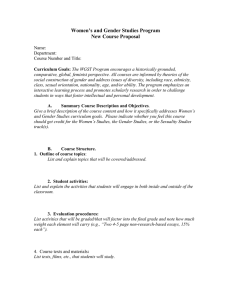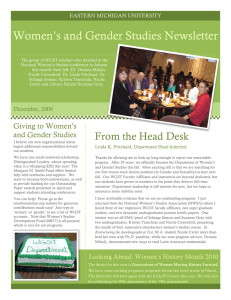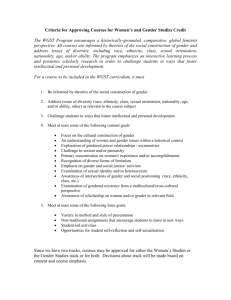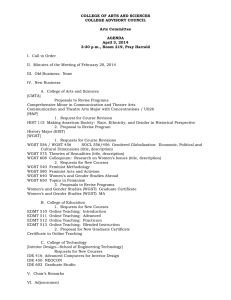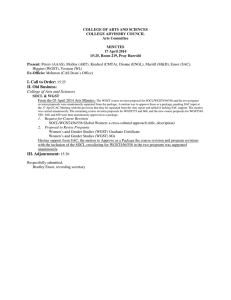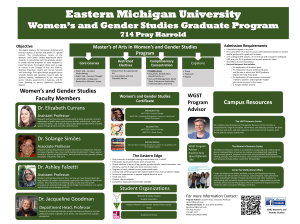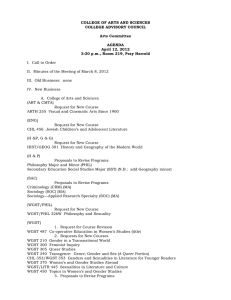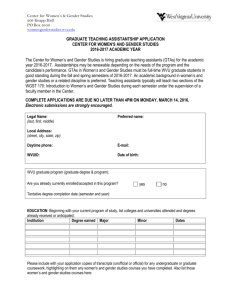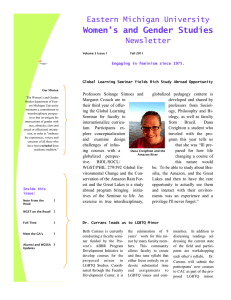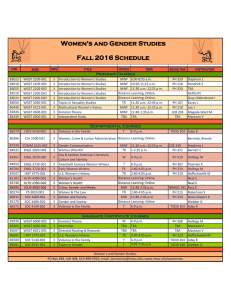Directed Study Approval Form
advertisement
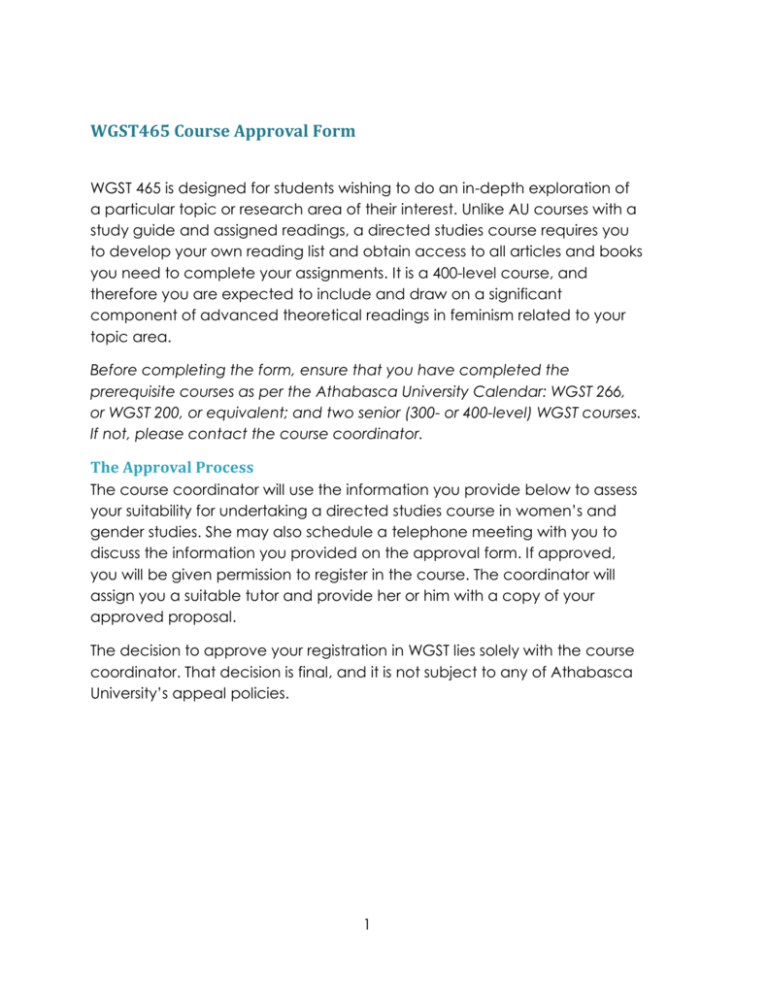
WGST465 Course Approval Form WGST 465 is designed for students wishing to do an in-depth exploration of a particular topic or research area of their interest. Unlike AU courses with a study guide and assigned readings, a directed studies course requires you to develop your own reading list and obtain access to all articles and books you need to complete your assignments. It is a 400-level course, and therefore you are expected to include and draw on a significant component of advanced theoretical readings in feminism related to your topic area. Before completing the form, ensure that you have completed the prerequisite courses as per the Athabasca University Calendar: WGST 266, or WGST 200, or equivalent; and two senior (300- or 400-level) WGST courses. If not, please contact the course coordinator. The Approval Process The course coordinator will use the information you provide below to assess your suitability for undertaking a directed studies course in women’s and gender studies. She may also schedule a telephone meeting with you to discuss the information you provided on the approval form. If approved, you will be given permission to register in the course. The coordinator will assign you a suitable tutor and provide her or him with a copy of your approved proposal. The decision to approve your registration in WGST lies solely with the course coordinator. That decision is final, and it is not subject to any of Athabasca University’s appeal policies. 1 Approval Form Complete this form, and email it the course coordinator, Dr Rhiannon Bury, Associate Professor, Women’s and Gender Studies: rbury@athabascau.ca Student Name: Student ID: Two senior (300- or 400-level) WGST courses completed: WGST_______ WGST _______ Proposed directed studies title: Proposed start date: Below provide a 300–500-word overview of your proposed area of interest. You should include your reasons for wanting to do a directed study in this area, your background knowledge and interest in the area (acquired from previous course work and/or self-directed reading), and some tentative research questions to explore. 2
